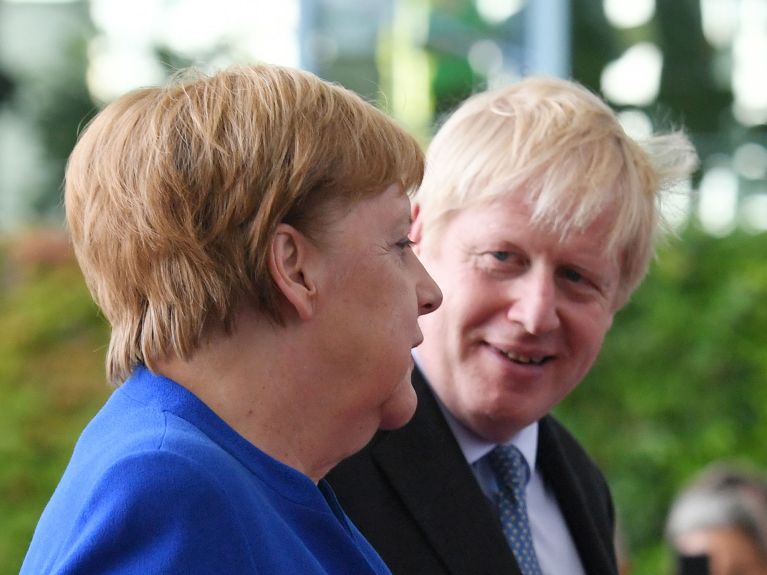The European dream won’t come to an end
The EU remains a great success. Brexit will only strengthen it, and even the UK will know it to be true.

When someone talks about the European Union these days, it’s a shock to hear them utter anything but negative criticism. After all, there’s quite a lot to criticize, and politicians and the media – especially during election campaigns – pick and choose the details to cite in delivering their expected anti- EU bromides: too much Brussels bureaucracy, too patronizing, too confining for its member states, not really democratic and too far-removed from the expectations of its member states in terms of the extent and methods of its communitized policy.
Many countries have ambitions to join the EU
Not all of this criticism is ill founded. So it’s a bit of a surprise that the list of countries that would very much like to become EU member states is still quite long. They all refer back to Article 49 of the EU treaty, which entitles any European country to apply for membership. Montenegro, Serbia, Albania and North Macedonia, Bosnia and Herzegovina, Kosovo, Turkey – they would all like to join the EU.
While the ultimate fates of the EFTA states of Iceland, Liechtenstein, Norway and Switzerland are as yet undecided, even Armenia, Azerbaijan, Georgia, Moldova, Ukraine and Belarus occasionally reveal ambitions to join the EU, albeit under the watchful and disapproving eye of Moscow. Russia still feels the acute pains of the amputations it suffered during the dissolution of the Soviet empire and would desperately like to regain its former influence over global affairs, which is why it sees the expansion of the EU as a territorial threat to its goals.
The best traditions of Europe
What makes the EU so attractive? There is still a clear perception that federating as such pays out a tremendous peace dividend. In the seventy years since the catastrophe of World War II, Western Europe has enjoyed a hitherto unknown period of peace and freedom – a consequence of having somewhat mitigated the power and appeal of the individual nation state to the benefit of collective efforts like the European Union.
The continent, in its Western bloc, was able to return to the best traditions of Europe and allow the tenets of human rights, freedom and democracy to take root. It also gained the opportunity to end its worse traditions of subjugation and colonialism. Individual freedom and democracy as well as human and material solidarity – these promises more than any others developed an appeal that, after 1989, led to the fall of the Soviet empire and to the eastward enlargement of the EU.
That was not a case of EU expansionism by armed force or extortion; all these people simply wanted to live in societies that ensure freedoms as well as economic growth and prosperity. With these humanistic principles as its foundation, the EU has nurtured its great appeal. It is a model for many states across the world and a beacon of hope for countless migrants who seek to partake in the “European dream.”
The UK leaving the EU changes nothing of this
The UK leaving the EU changes nothing of this. The country is suffering the after-pains of having lost its great empire. The immigration crisis it perceives is the result of its own colonial past as well as an issue facing all prosperous, industrial countries in the West. It is thus searching for its own identity and is determined to find it, even at the price of irrational self-abasement and material loss.
The EU is seen as an obstacle because its broadminded ideas on rising above nationalist sentiment disturb this process. Yet perhaps in the not too distant future, the UK will join the queue of EU candidates; after all, living alone on their island will not cause the Brits to forget that they share the ideals of the EU.
Brexit triggered a wave of fresh will for European solidarity
The damage caused by leaving the EU will be immense – economically, politically, scientifically and in terms of both education and migration policy. Let the other EU member states be warned: They do not want to follow the UK down that path. Brexit has only made the EU stronger, and triggered a wave of fresh will for European solidarity. In light of its current problems, the EU can indeed almost be thankful for Brexit.
For this very reason, experienced EU politicians are looking upon the current EU crisis with calm. They remember that in the past, their union has always emerged from its often considerable inner conflicts in even stronger condition than before.
Read the whole text on The German Times website
Michael Rutz was executive editor of SAT. 1 from 1989 to 1994 and editor in chief of the weekly newspaper Rheinischer Merkur from 1994 to 2010. He has also written numerous books and produced several documentaries.
